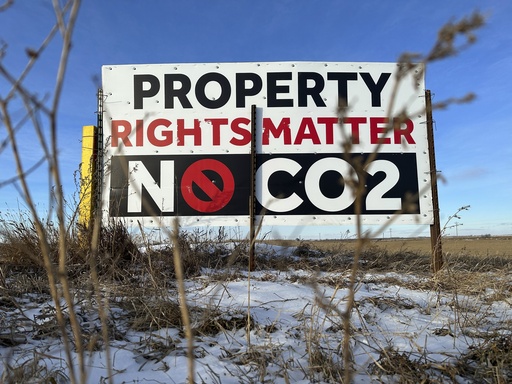The efforts to gain approval for a carbon dioxide pipeline project in the Midwest face additional challenges if South Dakota voters reject a law passed by the Legislature. The law, which opponents argue is an attempt to limit local control and speed up pipeline approval, has been validated for a referendum on the Nov. 5 general election. Critics claim the regulations would remove the power of county officials to enforce strict rules on pipelines.
Chairman of the South Dakota Property Rights and Local Control Alliance, Jim Eschenbaum, stated that the law takes authority away from local governments and gives it to the state Public Utilities Commission. The proposed $5.5 billion, 2,500-mile pipeline network by Iowa-based Summit Carbon Solutions aims to transport emissions from numerous ethanol plants in several Midwest states to underground storage in North Dakota.
Summit has faced opposition and setbacks in various states, with North Dakota regulators reconsidering a permit denial and Iowa granting conditional approval. South Dakota denied Summit’s permit last year, but the company intends to reapply this summer. Some landowners resist the pipeline, citing concerns about property use, potential gas leaks, and federal tax credits for carbon capture projects.
House Majority Leader Will Mortenson believes the pipeline will proceed regardless of the law’s fate. He advocated for the law, which includes new requirements like pipeline depth, operator liability, and disclosure of plume models. However, opponents like Republican state Rep. Karla Lems fear the law could pave the way for unimpeded projects like Summit’s, disregarding local interests.
Summit’s spokesperson described the law positively as supportive of farmers, ethanol, and business interests, emphasizing that it protects landowners and offers property tax relief. Discussions continue about the balance between economic benefits and potential risks associated with the pipeline project.


